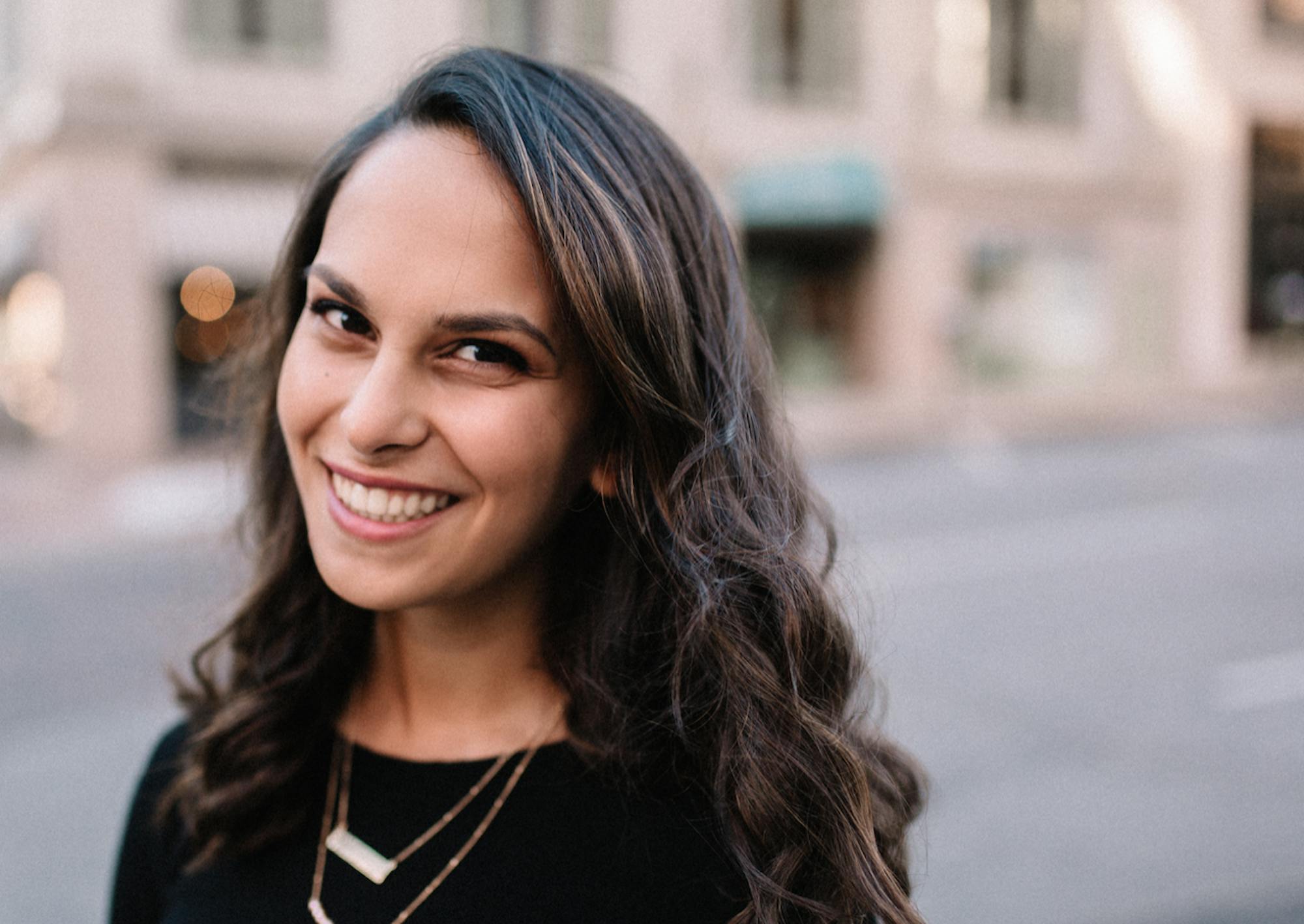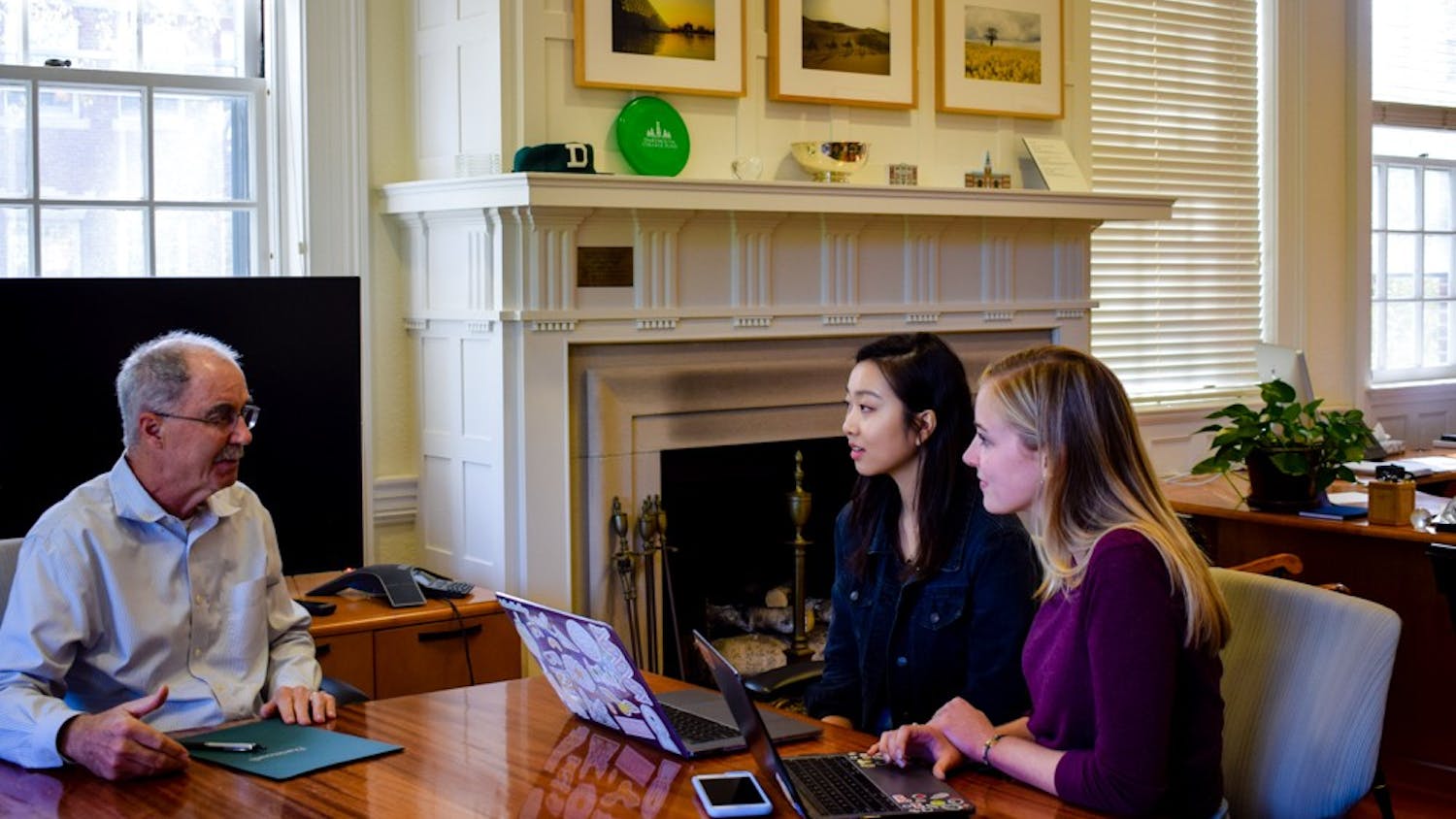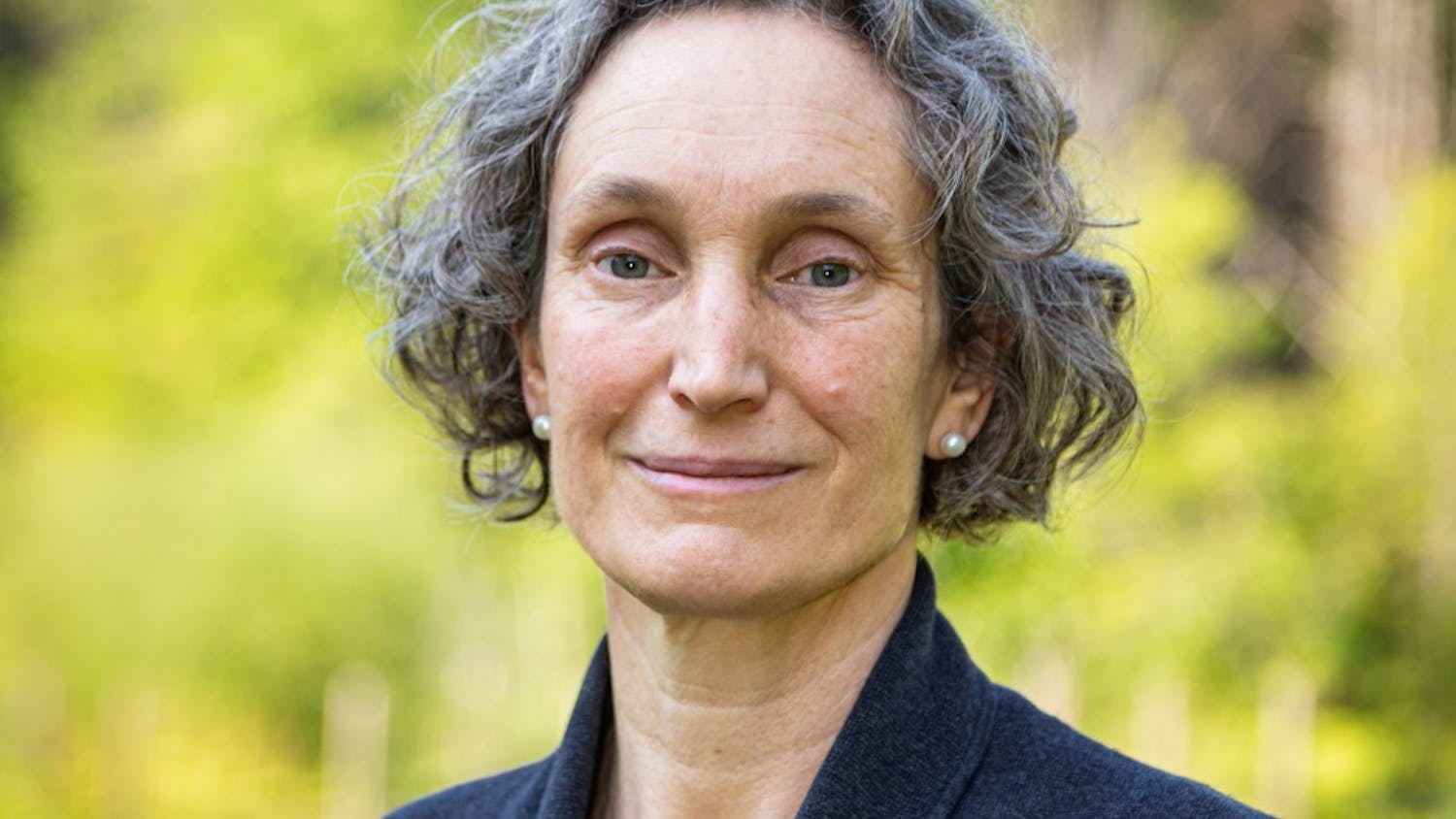On April 14, the Harry S. Truman Scholarship Foundation named Dhwani Kharel ’22 a 2021 Truman Scholar. Kharel is one of 62 students from 51 U.S. academic institutions to receive the award.
Created in 1975, the scholarship recognizes and supports leadership, public service and academic achievement. Truman Scholars receive up to $30,000 toward graduate or professional school, leadership development activities and opportunities for internships and employment in the federal government. Kharel was selected from an applicant pool of 845 college juniors from 328 schools — a record number of applicants — nominated by their institution based on their leadership accomplishments and academic credentials. The Dartmouth sat down with Kharel to discuss her interests, aspirations and the application process.
Dhwani, you were born in Nepal and you have lived in Michigan, Nebraska and South Dakota. How did you find yourself at Dartmouth?
DK: I think the reason that I chose Dartmouth was because of the community feel of the campus. There was a huge emphasis on professors working directly with students, and I saw that first-hand, especially with the work that I've done with [government professor] Deborah Brooks. I had contacted a different professor about something and she connected me with professor Brooks, and that's how I began doing research with her.
What specific interests do you have in government and public policy?
DK: Generally, I'm very interested in women's rights. A more specific issue I'm really passionate about is economic justice, because I think that is key to any other women's rights goals. Part of that is child care — I think we're beginning to see how important child care is, especially with the COVID-19 pandemic. That's something that I really want to focus more on; I'm doing some work on it this summer. Beyond that, I think I've begun learning a little bit more about health care policy and how the health care system in the United States disadvantages women because it starts from a standpoint that men are the default human[s]. After that, the health care system makes determinations rather than trying to see how health care can be made better for women. That's something that I've recently been reading a bit more about and something that I would like to work more on in the future.
What led you to become interested in women’s issues? What aspects of the women’s rights movement attract you specifically?
DK: My mom stayed at home to take care of me and my brother, and I saw directly how that affected her, especially the opportunities that she was able to have later on in life when my brother and I started going to school. Coming to Dartmouth, I was very involved in sexual violence prevention work, and seeing still how there is a culture of harm at Dartmouth, that’s something that directly needs to be worked on. I think that it's not just Dartmouth-specific, but that it’s a problem throughout college campuses and our society at large. The connections between the different ways that women are disadvantaged in our society is something that I've thought a lot about and that's why I really care about it.
What was the Truman application process like?
DK: First, I applied through Dartmouth. Dartmouth selected four people to be nominated at the school stage, and then after that, a selection committee selects finalists from throughout the United States. After that, a regional panel interviews finalists, and then they choose the Truman Scholars. For the application process, it focused on what I want to do in the future, what I've done previously and the connections between those two.
How did you hear that you had won the Truman Scholarship? Were you surprised by the news?
DK: I was pretty speechless. President Hanlon called me and let me know.
What does winning the Truman Scholarship entail? What kinds of opportunities do Truman Scholarship finalists get?
DK: One of the biggest things is the Truman Scholars network. There have been so many people within the network who have done phenomenal work. I'm just really excited to learn from them, especially since their interests are so wide-ranging — from health care, to education, to space exploration, which I was pretty blown away by. I think there's a lot there within that community. There's also a leadership training week that's coming up in May that I'll be taking part in. I'm looking forward to that, and hopefully getting to know the other Truman Scholars. Of course, the scholarship helps a lot, especially for someone like me who's on financial aid. It will be really helpful in paying for law school, which is not super accessible, and as I pursue a career in public interest law. Coming out of law school, having a ton of debt can make things challenging, so I'm definitely really grateful for that aspect of the fellowship, as well.
How has your experience at Dartmouth shaped or inspired your decision to pursue a career in public service? What about women’s issues?
DK: I think one of the people who was probably most influential on me was Deborah Brooks. She's always been incredibly encouraging, and I think she's especially a champion for women within the government department and Dartmouth at large. I worked with her specifically on menstrual health issues, and that exposed me to the different problems that many activists and nonprofits face. I also looked a little bit at the legal side of it — when I was researching menstrual health policy within the United States, that was also really interesting to me. I think working on sexual violence prevention, there are so many gaps within current frameworks. That's not just in sexual violence prevention — that's in the way that society deals with violence against women in general. All of these different experiences have given me a wide range of perspectives.
This interview has been edited and condensed for clarity and length.





